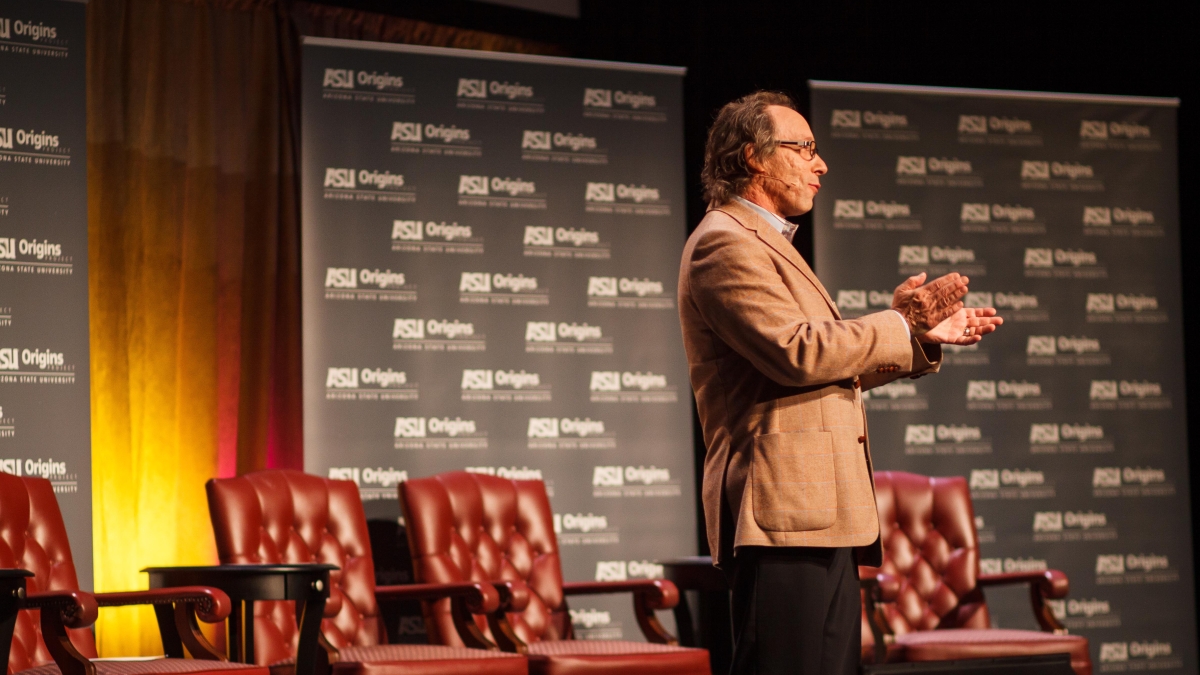Religion based on reason? ASU Origins event explores possibilities

Theoretical physicist Lawrence Krauss opened Science, Myth, and Reality – the first of two public presentations that highlighted The Origins Stories weekend at Arizona State University – by saying he was thrilled to be part of events that on consecutive nights would "fill up a 3,000-seat theater to talk about science."
The next two and a half hours were filled for the nearly capacity crowd at Gammage Auditorium on March 29 with fervent expositions on the value of science and its reason-based view of the world.
The audience first viewed the premiere screening of “The Unbelievers,” a documentary-in-progress that follows Krauss and evolutionary biologist Richard Dawkins on globetrotting missions to crusade for their cause.
The film shows them on the road in Australia, London, Washington, D.C., New York and Phoenix, debating in packed auditoriums and lecture halls, in radio and television interviews and at a “Rally for Reason.” At each stop they assertively take issue with dogma they contend stifles human progress and understanding – predominantly the worldviews of resolute religious fundamentalists.
Krauss and Dawkins were then joined on the Gammage stage by the director of “The Unbelievers,” Gus Holwerda, and his brother Luke, the movie’s cinematographer, along with acclaimed authors Ian McEwan and Cormac McCarthy, and movie actress Cameron Diaz.
Each gave their take on the theme of the event, expressing a consensus that knowledge emerging from scientific examinations of the world offers a sound basis from which to seek solutions to humankind’s challenges.
Their discussion was followed by questions from several audience members, the last query coming from a young boy who asked if there is a way society could adopt “a religion based on reason?”
Krauss concluded the discussion, saying the question provided thoughtful and fitting words on which to end the evening.
The event was presented by The Origins Project at ASU, which is directed by Krauss, and strives to offer "new possibilities for exploring the most fundamental of questions about who we are and where we came from."